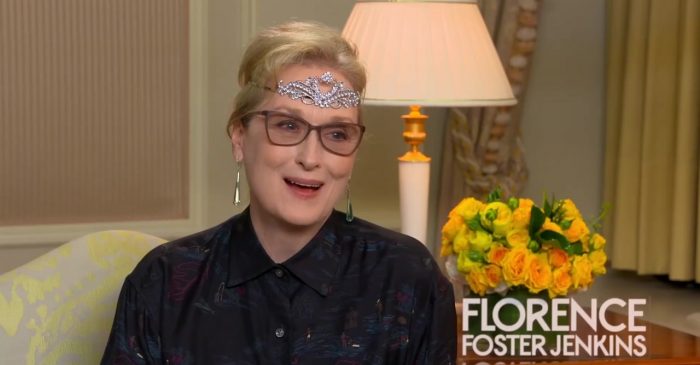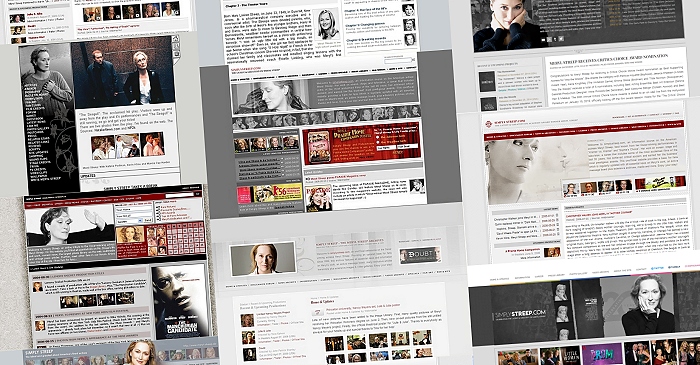
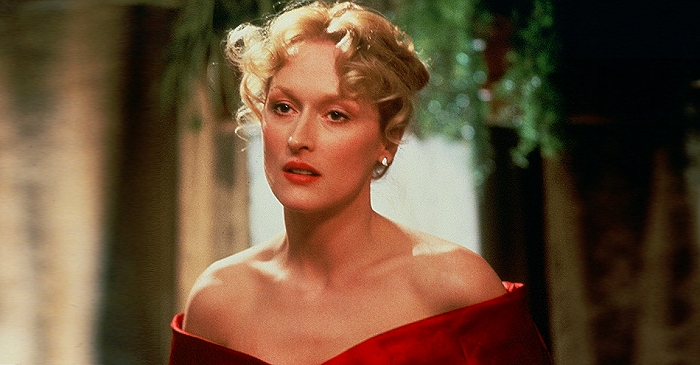
On this day 40 years ago, Universal Pictures released the film that would cement Meryl Streep’s status as one of the greatest living actresses, in a harrowing film about the effects of the Holocaust on people’s sanity and lives. The status remains, and so does the brilliance of her Academy Award winning peformance in “Sophie’s Choice”.
Imagine, only for a moment, if we would talk about Meryl Streep today had she retired her film career in 1982. The majority of us wasn’t born yet – and Streep had done only seven films in a rather short period on film. But for those she had amassed three Academy Award nominations and one win, in three Best Picture nominations with two wins, a breakout role on tv with an Emmy win and a splashy part in Woody Allen’s “Manhattan”. Of the many talented new stars of the early 1980’s, Streep was “the one”. But it wasn’t until “Sophie’s Choice” that audiences and critics started labeling her “the greatest”. Had it been her last film, I’m sure we would still talk about this rather short career to this day, but probably within a much smaller group of film afficionados. Fortunately for us, Meryl Streep has entertained us with illustrious characters to this day. And 40 years after its release, “Sophie’s Choice” still reminds us that here is an actress that can do everything.
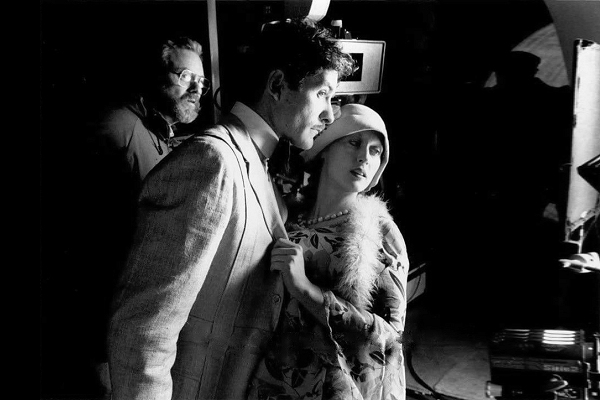
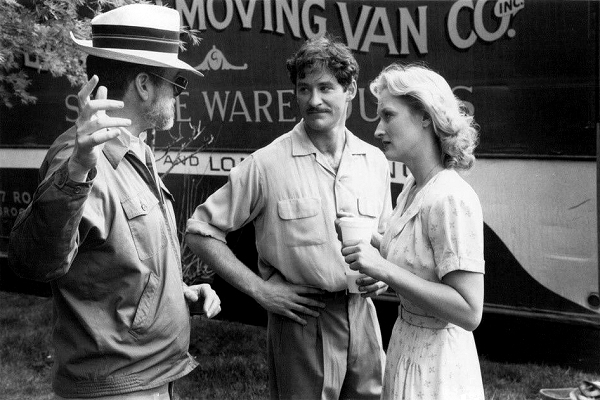
The role of Sophie is often listed as one of the greatest film performances of all time. But you won’t find the film itself in many lists (except its inclusion in the AFI’s 100 Years… 100 Movies at number 91 in 2007). The film is remembered for its titular choice scene, which has become part of pop culture for all the wrong reasons. Yet, the film, based on the novel by William Styron, is not considered a classic in the same vein, and I don’t think that many people have seen it in its entirety. They are forgiven, since the film, like the book, is a rather depressing piece of people losing their minds and/or lives because they cannot deal with the horrors of life. That doesn’t exactly fit for a cosy Sunday afternoon watch.
Styron’s novel was published in 1979 and optioned by direcor Alan Pakula shortly after its release. Meryl Streep was noted as a possible contender for the role as early as 1979, although she was far from the first choice – Styron alledgedly wrote the novel with Ursula Andress in mind while Pakula wrote the screenplay envisioning Liv Ullman. But Streep was persistant in convincing Pakula – her determination to play Sophie was often attributed to a 1981 Time Magazine cover story, in which they wrote about her “throwing herself on the ground and begging him to get the part” – which is most probably an exaggeration of its time.
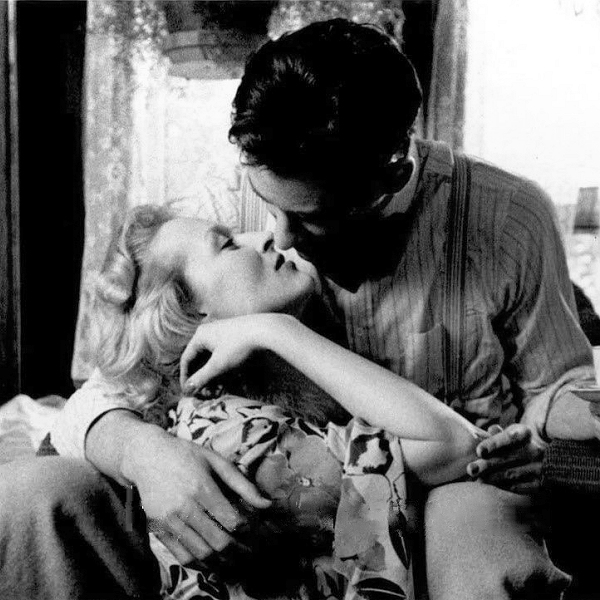
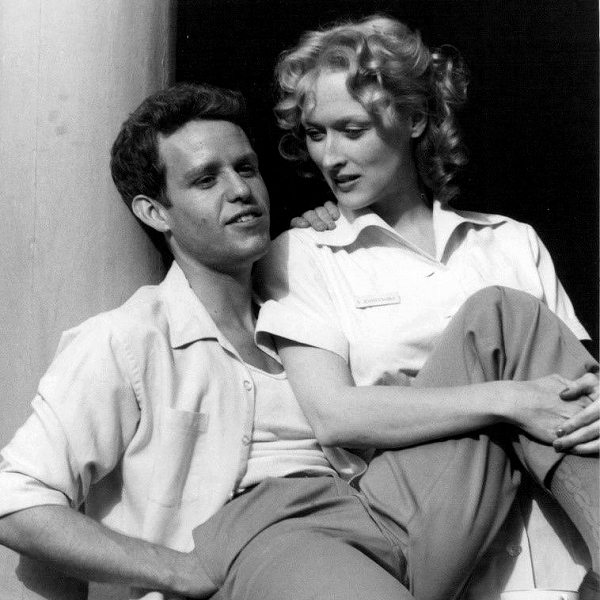
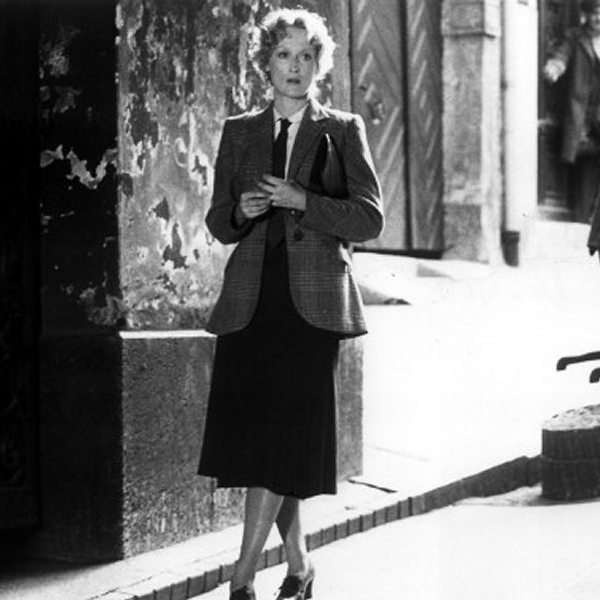
By the Summer of 1980, after plans fell through to cast an unknown Slovak actress, Pakula offered the part to Streep. By that time she was at the height of her breakout career, with the training to fully immerse herself into a Foreign role. Both decided to postpone production so they could finish “The French Lieutenant’s Woman” and “Rollover”. After a long negotiation period to get “Sophie’s Choice” greenlit, its filming process and release were rather fast. It was shot in three months, from March to late May of 1982 in Brooklyn and the last couple of weeks in Zagreb, Yugoslavia, for the flashback scenes, and was completed and released six months later in December.
Staying close to the source material, “Sophie’s Choice” is not Sophie’s story per se – it could have been titled “Stingo’s Story” instead, as it follows the incarnation of the young Styron and the time he spent in Brooklyn. The casting of Peter MacNicol in the role takes a minute to set in, because I’m sure most of us remember him for his outlandish weird roles in the years to come (I also cannot unsee camp organizer Gary Granger in “Addams Family Values”). At that time, he was a budding stage actor, as was Kevin Kline, who made his screen debut as Nathan – probably one of the most powerful entries the film world had seen in quite some time. But whenever the focus remains on Stingo, the film drags along and loses steam. When it comes back to Sophie and Stingo, sparks fly.
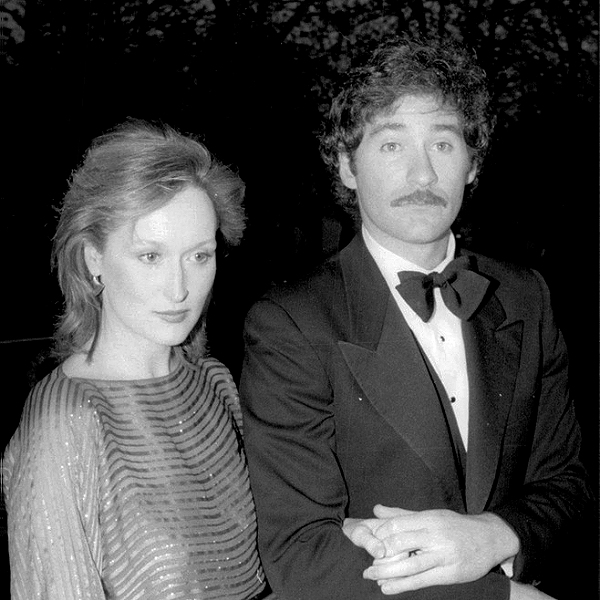
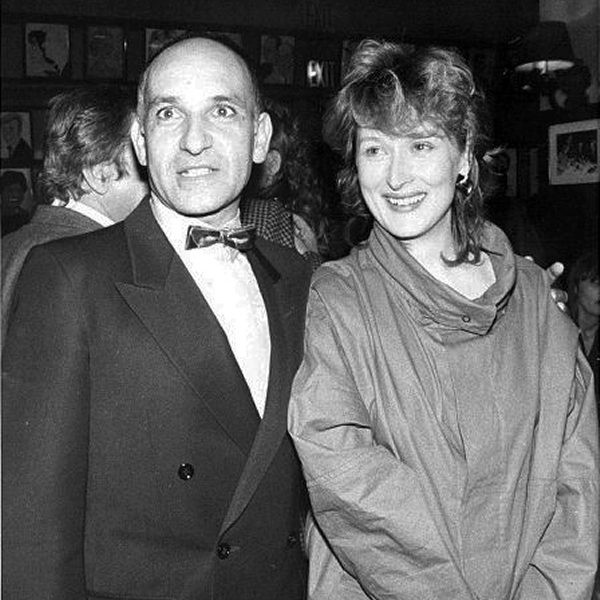
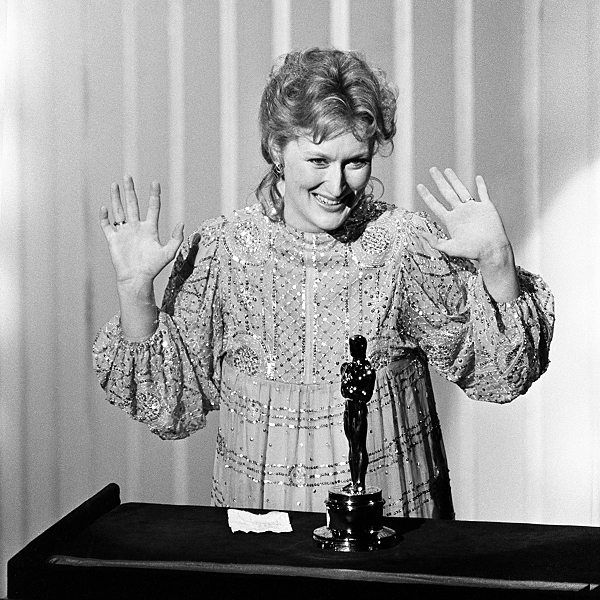
For Sophie, Streep won pretty much every award there is in acting, including a second Academy Award, a Golden Globe, National Board of Review, New York Film Critics Circle and many more. It was most probably also the beginning of Streep-fatigue among critics, who had confirmed her singular talent time and again – but where do you go from there? “Silkwood”, “Out of Africa” and even “Ironweed” were masterclasses in their own right – but were they as good as Sophie? It took Streep a whopping 20 years to win another major film award (2003’s Golden Globe for “Adaptation”), which would initiate an opposite look at her career: The Streep-renaissance.
Looking back at the film 40 years after its release, “Sophie’s Choice” remains as difficult to watch and as brilliant in the performance. It ranks among the films “that aren’t made any longer” – and that haven’t been made in the last 20 years.



